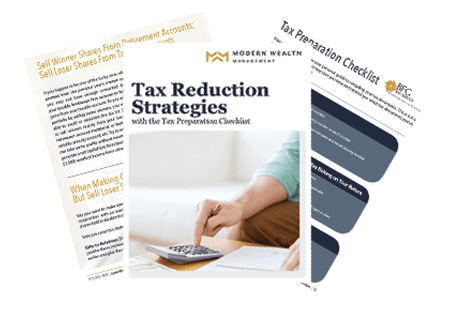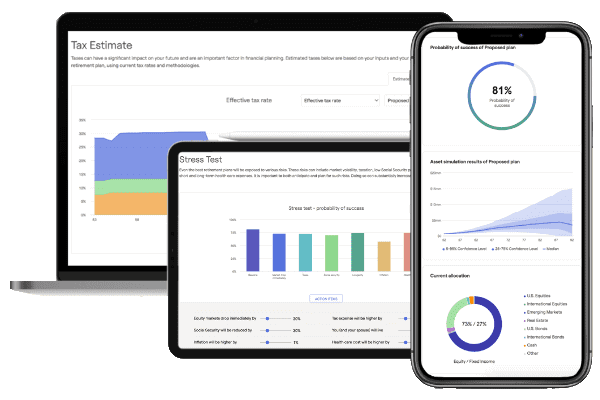Retiring Before 65: What You Need to Consider
Key Points – Retiring Before 65: What You Need to Consider
- Can You “Retire Early?” or Do You Want to Wait Until Reaching Medicare Age?
- Factoring in Inflation to Your Retirement Plan
- Taxes and Health Care Are the Two Biggest Wealth Eroding Factors in Retirement
- 5 Minutes to Read | 23 Minutes to Watch
What Do You Need to Keep in Mind If You’re Retiring Before 65?
With retirement planning, there are several age milestones that everyone needs to be aware of. One of the biggest ones is 65 because that’s when you become eligible for Medicare. Some people don’t even think about retiring before 65 for that very reason.
Something our advisors hear way too often from people is that they don’t think they can retire before 65 because of how expensive health care costs. To be fair, they’re not wrong about it being a huge expense—especially since it’s something that your employer can cover for you.
What You Might Be Sacrificing by Not Retiring Before 65
But think about what you might be missing out on by working deep into your 60s. There’s precious time with grandchildren that you can’t get back, exciting trips, and so many other things that are important to you that you could be doing instead of working. For a lot of people, there’s no price tag that can be put on those special things.
Those are all critical things that need to be considered with retiring before 65. If you want to retire before 65, let’s see that’s possible for you by creating a forward-looking financial plan. That’s the only way that you can retire before 65—or at any age for that matter—and do so with clarity and confidence. Simply put, you don’t know what you don’t know as Dean Barber and Bud Kasper like to say. So, if you’re thinking about retiring before 65, consult with a CFP® Professional who can build you a goals-based plan so you can truly understand what all needs to be considered in the retirement planning process.
What Could Retiring Before 65 Look Like?
Dean and Bud have said many times on America’s Wealth Management Show that the two biggest wealth eroding factors in retirement are taxes and health care.
“The average cost for health care for a married couple in their early 60s is going to run you $25,000 to $30,000 a year in insurance premiums. That’s a big pill to swallow. That cuts down dramatically once you start getting on Medicare.” – Dean Barber
Retirement planning is all about trade-offs. The decision to retire before 65 or not is a good example of that. Ask yourself these questions. Do I want to keep working until 65 and have health insurance covered through my employer? Or do I want to retire earlier, therefore creating more time for you to do the things that are most important to you, but having to go to the market place or other alternatives and pay for your own health insurance until getting on Medicare at 65?
“When you factor in that type of an expense into the income that you’re trying to create, how much of it is it taking up? Is that one third of your total income on an annual basis? Is it larger than that, smaller than that? How can we alter that so we might be able to mitigate some of that change that’s taking place?” – Bud Kasper
This Is a Tax Issue
When you’re looking into retiring before 65, taxes need to be top of mind. The amount of money you pay for health care before becoming Medicare eligible is all about taxable income—adjusted gross income.
“If someone really wants to retire before 65 but is concerned about Medicare premiums, put together a plan and qualify for the ACA subsidies so that it will greatly reduce or even eliminate your health care premiums prior to 65.” – Dean Barber
This is where the Roth can really be powerful. If someone has saved into the Roth portion of their 401(k) or Roth IRA prior to retirement and wants to reduce their adjusted gross income in the early years of retirement to qualify for the ACA subsidies, spend from your Roth IRA. It’s tax-free.
“This is where the CPA become one of the critical factors in the planning process. Our objective is to eliminate as much of Uncle Sam out of your life as possible.” – Bud Kasper
And we’re not just looking at how you can pay as little tax as possible in one year. The goal should be to pay as little tax as possible over your lifetime. That’s critical if you’re going to successfully retire before 65. We’ve outlined various tax planning strategies within our Tax Reduction Strategies guide. Download your copy below to see what tax planning opportunities you could take advantage of.

Applying Different Inflation Factors to Different Things within Your Plan
Also, keep in mind that part of why health care costs are so expensive is because of inflation. The high inflationary environment we’ve been in for the past two years now has opened people’s eyes a bit more about needing to factor inflation into their financial plan. That’s an important first step with planning for inflation, but there’s more.
It’s important to understand that different expenses inflate at different rates. For example, your mortgage won’t inflate at all. Everyone has felt the pain of inflation with the high costs of goods at the grocery store and at the gas pump, but the costs of things like college tuition and health care have been even more inflated. Therefore, you need to plan accordingly and apply a higher rate to health care costs within your financial plan.
Gaining Clarity and Confidence from Your Financial Plan
The bottom line when considering your ability to retire before 65 is understanding the importance of having a financial plan. You can’t figure out if you can retire before 65 just by doing back-of-the-envelope math of even with an online retirement calculator. Those retirement calculators can leave out so many things that are critical to gauging your ability to retire, such as:
- Insurance
- Current Tax Rates Sunset in 2026
- Debt Modules and Calculators
- Medical Expenses
- Social Security
- Inflation
- Required Minimum Distributions
- Your Asset Allocation and Potential Returns
- Your Personal Goals for Retirement
It’s Time to Start Planning
We’ve touched on nearly all those things just in this short article. Hopefully we’ve helped demonstrate what all needs to be considered with retiring before 65 and why you need a financial plan to account for all those things. If you don’t have a financial plan or have a plan that’s missing those things that we just mentioned, let’s change that.
Whether you’re wanting to retire before 65 or just want to know where you’re at, you can use our industry-leading financial planning tool to assess your personal situation. We’re giving you the opportunity to use our tool from the comfort of your own home and at no cost or obligation. Click the “Start Planning” button below to begin building a plan that’s customized around your needs, wants, and wishes.

We also can’t stress enough how important it is to work with a team of professionals. Do you want to see what it’s like to work with a CFP® Professionals that works alongside CPAs that are in-house as well as estate, risk management, and investment specialists? We can further explain what that’s like and how our team works together to build and update your plan during a 20-minute “ask anything” session or a complimentary consultation. We can meet with you in-person, by phone, or virtually to discuss your financial planning needs.
Retirement Considerations: Retiring Before 62 or 65 | Watch Guide
00:00 – Introduction
01:17 – Retiring Before 62
03:50 – Social Security & Cash Flow
06:06 – Social Security & Taxes
10:00 – Hi/Low: Oldest and Youngest
12:59 – Retiring Before 65: Health Care
14:55 – Why Roth Matters for Health Care Before Medicare
17:06 – Tax Bracket Management Is Critical
20:59 – What We Learned Today
Resources Mentioned in the Episode
Articles
- What Is Financial Planning?
- How Much Do I Need to Retire?
- 5 Summer Activities to Do with Your Grandkids
- Claiming Your Social Security
- ABCs of Medicare
- Can I Retire Early? Becoming Financially Independent
- Avoiding Costly Mistakes When Claiming Social Security with Ken Sokol
- Components of a Complete Financial Plan with Logan DeGraeve
- Social Security Benefits for a Surviving Spouse
- Starting the Retirement Planning Process
- Health Insurance Options for Retirees Under 65
- Taxes on Retirement Income
- Family Financial Planning with Matt Kasper
- Mortgage Tips for Different Phases in Life with Tim Kay
- How to Mitigate Inflation on Health Care Costs
- Tax Planning Opportunities with Marty James
- Roth Conversions Before and After Retirement
- What Are Tax Brackets?
- Tax Rates Sunset in 2026 and Why That Matters
- Considering RMDs Before and After Retirement
- Asset Allocation vs. Tax Allocation
Past Episodes
- Couples Retirement Planning: What You Need to Know
- Are Retirement Benefits Taxable?
- What Is Tax Planning?
- Your Retirement Lifestyle: What Do You Want Your Retirement to Look Like?
- 8 Tips on Saving for Retirement
- What Is Wealth? 4 Types of Wealth
- 10 Ways to Fight Inflation in Retirement
- Meet Modern Wealth Management
- DIY Retirement Planning: What Can Be Overlooked?
- Converting to a Roth IRA: What Are the Pros and Cons?
- Retirement Cash Flow: What You Need to Know
- 9 Items That Retirement Calculators Miss (That Our Tool Doesn’t)
Downloads
Schedule a Complimentary Consultation
Click below to get started. We can meet in-person, by virtual meeting, or by phone. Then it’s just two simple steps to schedule a time for your Complimentary Consultation.
Investment advisory services offered through Modern Wealth Management, LLC, an SEC Registered Investment Adviser.
The views expressed represent the opinion of Modern Wealth Management an SEC Registered Investment Adviser. Information provided is for illustrative purposes only and does not constitute investment, tax, or legal advice. Modern Wealth Management does not accept any liability for the use of the information discussed. Consult with a qualified financial, legal, or tax professional prior to taking any action.